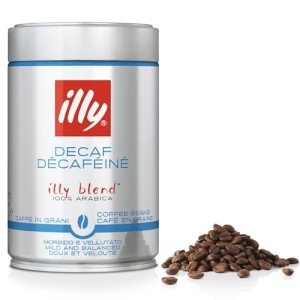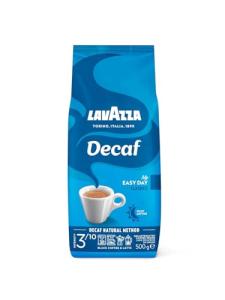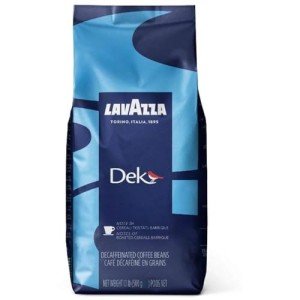Slow Roasted Java Caffe Decaf Arabica Coffee: A Comprehensive Guide
Coffee lovers often find themselves caught in a dilemma: the need for that comforting cup of goodness without the undesired jitters or sleep disturbances caused by caffeine. This is where decaffeinated coffee steps in, providing a delightful solution. Among the varieties available in the market, Slow Roasted Java Caffe Decaf Arabica Coffee stands out for its rich flavor profile, premium quality, and smooth finish. This guide explores what makes this coffee unique, how it’s produced, its health benefits, and much more.
Understanding Decaffeinated Coffee
Decaffeinated coffee is processed to remove most of the caffeine content, allowing coffee enthusiasts to enjoy their favorite beverage at any time of the day without the adverse effects associated with caffeine. While methods for decaffeinating coffee beans vary, they all aim to keep the beneficial flavors intact.
How is Coffee Decaffeinated?
The process of decaffeination can be broken down into several steps:
-
Selection of Beans: High-quality green coffee beans are chosen. Arabica beans, known for their sweet, floral flavors, are often preferred for decaffeination.
-
Decaffeination Process: Common methods include:
- Solvent-based Decaffeination: Involves using chemical solvents like methylene chloride or ethyl acetate.
- Swiss Water Process: A chemical-free method that uses water to extract caffeine, preserving the flavor compounds.
- CO2 Decaffeination: Utilizes carbon dioxide to remove caffeine while maintaining bean integrity.
-
Roasting: Once the beans are decaffeinated, they are roasted to bring out their rich flavors.
The result of this meticulous process is a coffee that retains most of the aromatic and taste characteristics of regular coffee while significantly reducing caffeine content.
What Makes Java Caffe Decaf Arabica Unique?
Java Caffe Decaf Arabica Coffee is sourced from the lush coffee-growing regions of Indonesia. Java coffee is celebrated for its full-bodied flavor, hint of sweetness, and smooth finish, making it a favorite among coffee aficionados. The variety of beans is paramount; Arabica beans are known for their higher acidity levels and nuanced flavors compared to Robusta beans.
Flavor Profile
Java Caffe Decaf Arabica typically features:
- Rich Aroma: A deep, inviting smell that sets the stage for an enjoyable cup.
- Balanced Acidity: Not too sharp, allowing for smooth sipping.
- Subtle Sweetness: Often characterized by hints of chocolate or caramel.
- Full-Bodied Texture: Mellow yet robust, making it satisfying without overwhelming the palate.
Health Benefits
Decaffeinated coffee, especially quality Arabica varieties, offers multiple health advantages:
- Lower Stimulation: Ideal for those sensitive to caffeine.
- Antioxidant Properties: Contains antioxidants beneficial for maintaining overall health.
- Reduced Risk of Chronic Diseases: Some studies suggest a link between coffee consumption and a decreased risk of diseases such as Type 2 diabetes and Parkinson's.
Preparation and Brewing Tips
To maximize the experience of Java Caffe Decaf Arabica Coffee, consider the following brewing methods:
- French Press: This method allows for full extraction of oils and flavors, providing a rich cup.
- Pour Over: Ensures precise control over brewing time and temperature, accentuating the coffee’s complex flavors.
- Espresso Machine: Creates a concentrated shot with a creamy texture, perfect for low-caffeine lattes or cappuccinos.
Recommended Guidelines for Brewing
Here are some essential tips for brewing the perfect cup:
- Use Freshly Ground Beans: Grind right before brewing to lock in flavor and aroma.
- Water Temperature: Aim for about 200°F (93°C) to avoid burning the coffee.
- Brew Time: Generally, 4-5 minutes for French press, about 3 minutes for pour-over, and 20-30 seconds for espresso.
Slow Roasted Java Caffe Decaf Arabica Coffee provides an exquisite experience for coffee lovers seeking to enjoy the rich flavors of coffee without worrying about excessive caffeine intake. Whether it be for late-night sipping or simply to savor a delicious cup in the afternoon, this decaf coffee promises satisfaction.
In an era where health consciousness is at the forefront, embracing quality decaffeinated options can blend indulgence with wellness. The unique roasting process and sourcing of high-grade Arabica beans ensure that Java Caffe Decaf stands out amidst its competitors.
FAQs
1. Is decaf coffee completely caffeine-free?
- No, decaffeinated coffee is not entirely free of caffeine. It usually contains about 2-5 mg of caffeine per 8-ounce cup, compared to 95 mg in a regular cup of coffee.
2. How should I store my decaf coffee?
- Keep it in an airtight container in a cool, dark place to preserve its flavor. Avoid refrigeration, as moisture can lead to stale coffee.
3. Does decaf coffee have health benefits?
- Yes, it contains antioxidants and is linked to potential health benefits like a lower risk of certain chronic diseases.
4. Can I use decaf coffee for baking?
- Absolutely! Decaf coffee can be used in recipes that call for coffee for flavor without the stimulating effects of regular coffee.
5. How does the taste of decaf compare to regular coffee?
- While some flavor loss can occur during the decaffeination process, high-quality decaf like Java Caffe Decaf Arabica maintains much of the richness and complexity, often surprising those who try it.
In summary, whether you are a seasoned coffee enthusiast or just dipping your toes into the decaffeinated world, Slow Roasted Java Caffe Decaf Arabica Coffee is an excellent option that ensures you can sip and savor without the jitters.






